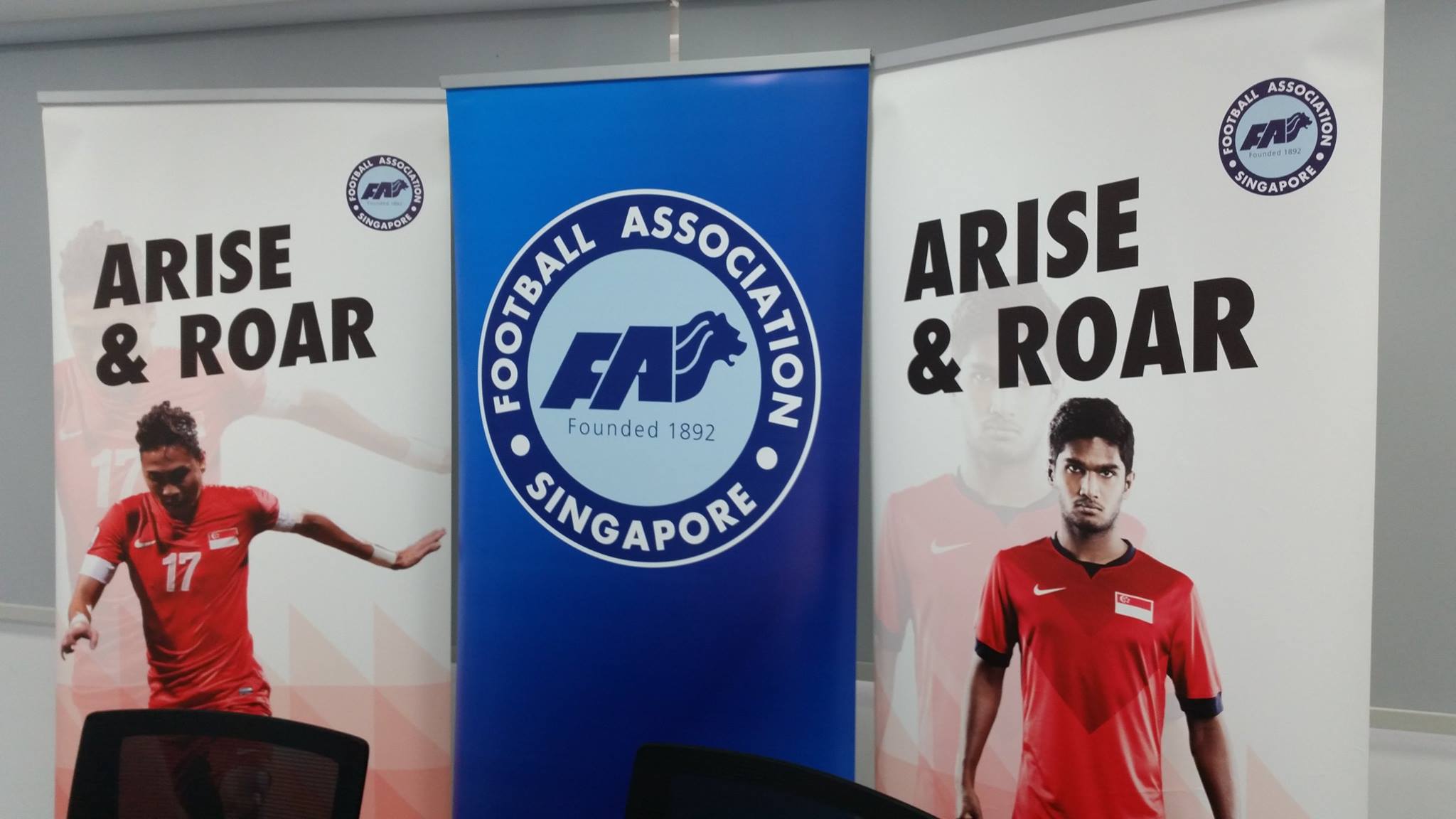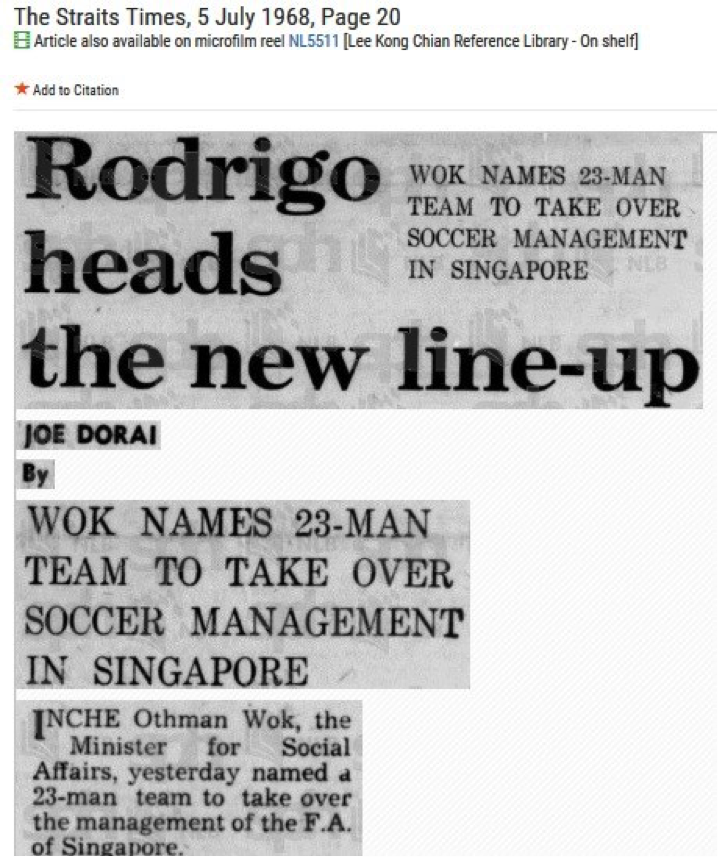The Football Association of Singapore (FAS) confirmed last Wednesday that it will hold open elections by March to select FAS Council members.
FAS has also said that its current leadership selection process, in which the FAS chief and his lieutenants are appointed by the government ministry in charge of sporting matters, "has been in place since 1982" and that "From the start, FIFA was aware of this practice and did not object to it".
But if a July 5, 1968 report by The Straits Times (see below) is accurate, then it would appear that FAS has a flawed understanding of its own history.
The above ST report suggests that the FAS Council was appointed by the government in 1968 and not chosen through open elections. Lenny Rodrigo, the then-appointed FAS chief, was the Member of Parliament for Serangoon Gardens.
ST reports throughout the 1970s regarding the appointment of FAS office holders also suggest that there were no open elections.
Did I inadvertently trigger FAS constitutional review, leading to open FAS elections?
FIFA contacted FAS on July 13, calling for a constitutional review that effectively meant open elections had to be held for any future FAS leadership selection.
The date, July 13, is very intriguing. Here's why.
To prepare for an article on why FAS should hold open elections, I reached out to FIFA on July 10, seeking clarification on its statutes regarding third-party influence.
Within six hours, FIFA replied to my email, pointing out "the clear wording" of the FIFA Statutes, Article 17. It very clearly states that any national FA whose office holders have not been elected or appointed with "complete independence", "shall not be recognised by FIFA".
But it wasn't clear why FIFA has allowed government influence in FAS for decades. So I emailed FIFA again, on July 12, asking:
"Is it true that governments are not allowed to interfere in an Football Association's (FA) affairs (such as the Bruneian government's removal of that country's FA officials from office in 2008, which led to the Bruneian FA's suspension in 2009), but governments are allowed to directly influence who gets into office in an FA (like in Singapore)?"
But this time it took FIFA almost 24 hours to respond. At close to 6pm on July 13, the very same day FIFA contacted FAS, I received FIFA's reply, which says: "In the case of Singapore FA, FIFA is aware of the matter and is working to ensure that the FIFA Statutes are respected in this regard."
From July 5, 1968 (the day of the aforementioned ST report) to July 12, 2015 (the day I asked FIFA about direct government involvement in FAS leadership selection), there were a total of 17,174 days.
What are the odds that it was purely coincidental that I asked FIFA a question on July 12 regarding the very issue it was planning to work on the following day? Coincidence or not, unanswered questions remain.
- Why did FIFA "not object to" government interference in FAS leadership appointment for so many years?
- Why did FIFA raise the issue of leadership appointment on July 13 (instead of on any of the prior 17,174 days), calling for an FAS constitutional review and open elections?
Without transparency in this matter, football enthusiasts have resorted to speculations. Some of these speculations have emerged on my Facebook page. Hopefully, FIFA will one day reveal the truth, and perhaps the government should explain why it had been meddling with the selection of FAS leaders all these years.
Michael Y.P. Ang is a Singaporean freelance journalist and an ex-sports officer at the former Singapore Sports Council. In 1999, he was among the core group of journalists who helped launch Channel NewsAsia, where he covered sport for several years. Follow his Facebook page Michael Ang Sports for his views on sport in Singapore.
Top photo from FAS Facebook page
If you like what you read, follow us on Facebook and Twitter to get the latest updates.
If you like what you read, follow us on Facebook, Instagram, Twitter and Telegram to get the latest updates.

